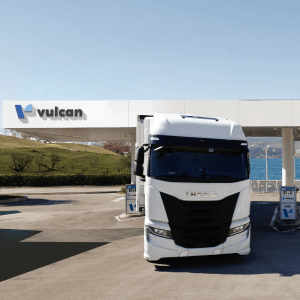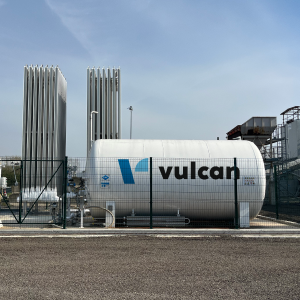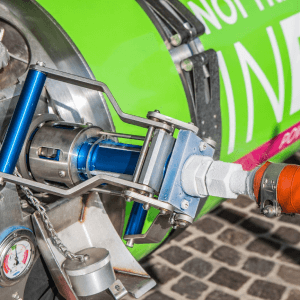The Sustainable Energy Revolution of the Future
By choosing BIOLNG, you are opting for a versatile and sustainable energy source with high performance in the field of natural gas.
Learn moreLNG and BIOLNG
Efficiency for Industry
By choosing to adopt sustainable solutions, you bring environmental and economic benefits to your business.
Discover the benefitsGet the VCARD
Vulcancard is Vulcan's fuel card designed for companies that operate heavy vehicles.
Learn moreOn the road to sustainability
In freight transport, it is possible to make a difference and reduce Co2 emissions.
Learn more about our network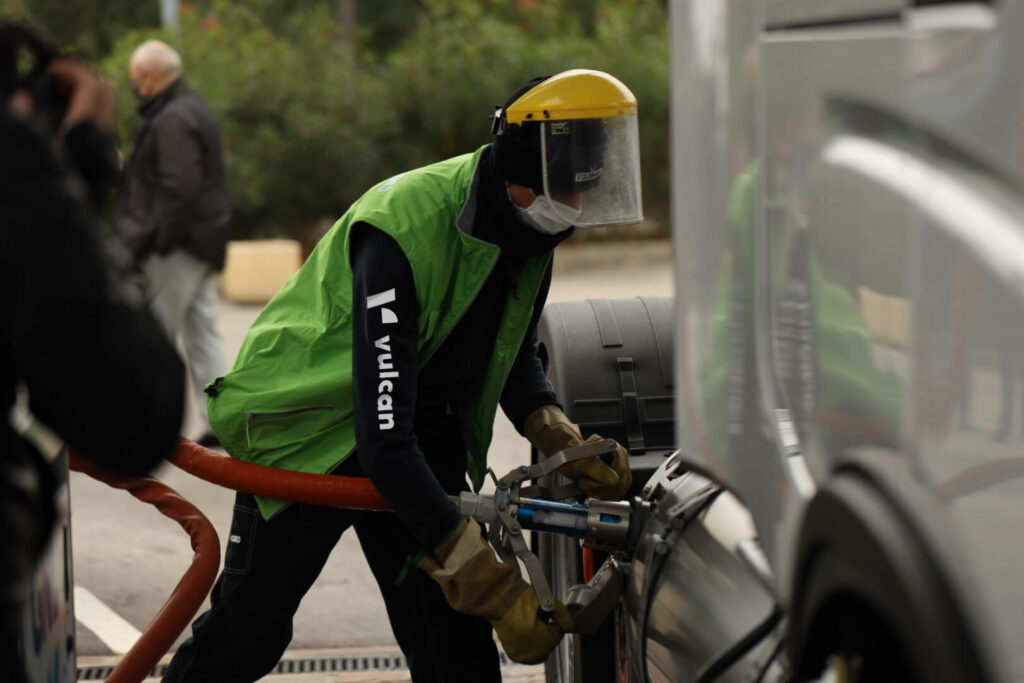
What is LNG
LNG or liquefied natural gas, essentially composed of methane, is an extremely clean fossil fuel that reduces CO2, nitrogen oxide and sulfur dioxide emissions compared to coal and oil.
LNG ‘s ability to reduce its volume by 600 times when liquefied makes it efficient for transportation and storage.
With global demand growing rapidly, LNG is emerging as an environmentally friendly and economical alternative to traditional fuels, playing an important role in the energy system, especially in Italy where a replacement for petroleum derivatives is actively underway.
BIOGNL: a renewable energy source for transportation and industry
BIOGNL or biogas is a liquefied biofuel produced from biomass, which can be used in various sectors, including transportation and industry.
In the transportation sector, BIOGNL can be used as a fuel for heavy vehicles, such as trucks and buses, offering a cleaner alternative to traditional fuels.
It can be used in existing compressed natural gas(CNG) or liquefied natural gas(LNG) vehicles.
In industry, BIOGNL can be used as an energy source for energy-intensive industrial processes, to produce heat and steam, or to generate electricity through cogeneration plants.
The characteristics of LNG
Liquefied natural gas has a calorific value of about 13,000 Kcal/KG, a value that establishes it as a product among those with the highest calorific value.
These characteristics make it a safe, clean and highly energetic product.
Its liquid form allows large quantities to be stored in relatively small spaces.
LNG is a product with a very low environmental impact; it contains no sulfur and emits very low amounts of carbon dioxide and nitrogen oxide during combustion.
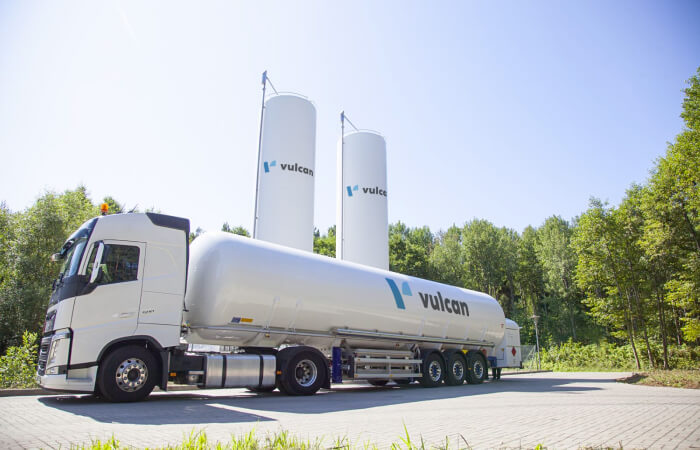

How we transport LNG
The Vulcan LNG -160° Corridor is being developed to cover all of Italy, with plans to double the network to facilitate LNG distribution from north to south. Vulcan manages the entire LNG value chain, from supply to final distribution.
Our outlets are modern, efficient and suitable for servicing heavy transport vehicles.
It also plans to expand in Europe, with active distribution networks in Serbia, Romania and Bulgaria.
Why choose LNG
Liquefied natural gas (LNG) offers several advantages, includingecology, safety, versatility, andcost-effectiveness.
It is considered an environmentally friendly fuel because it is odorless, non-toxic, non-corrosive and lighter than air, which allows it to be dispersed quickly in the event of an accidental spill.
In addition, LNG can be transported over long distances by LNG carriers, reaching remote areas and places not connected by international pipelines.
The ease of transporting liquefied natural gas and the ability to store large amounts of energy in small volumes make it cost-effective.
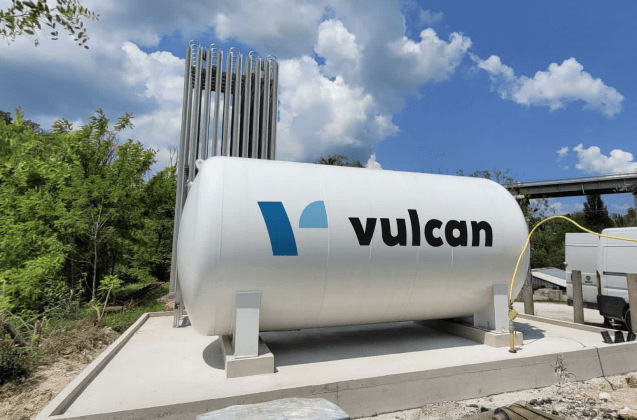
Our Promise
Technology, research and expertise are key to meeting the global challenges of the energy transition.
We believe in enterprising people, able to make a difference and contribute with passion and innovation.
We are committed to defining professional paths of growth and integration, within a flexible and stimulating work context, attentive to the well-being of each person and based on the recognition of each person’s uniqueness.
Whatever your ambition, with us you can find the tools to achieve it.
